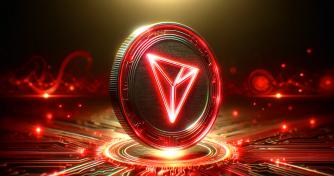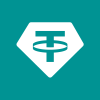 Justin Sun, Tron respond to UN report on TRC-20 USDT use in illicit finance
Justin Sun, Tron respond to UN report on TRC-20 USDT use in illicit finance Justin Sun, Tron respond to UN report on TRC-20 USDT use in illicit finance
Amidst UN scrutiny, Tron maintains TRC-20 USDT’s legitimate dominance while addressing misuse concerns.

Cover art/illustration via CryptoSlate. Image includes combined content which may include AI-generated content.
Tron founder Justin Sun said on Jan. 19 that the United Nations’ recent report about the illicit use of USDT misrepresents some of the “professional facts” about blockchain networks.
The UN report, which focuses on the rising use of USDT in fraudulent transactions, particularly in Southeast Asia, has drawn attention to blockchain technology’s challenges in preventing its misuse by bad actors.
The report also claimed that Tron is the “preferred” network for illegal financial activity.
Tron refutes UN allegations
Sun said Tron “wholeheartedly supports” the idea of stopping malicious actors from misusing blockchain technology. However, he added that blockchain technology needs to be understood better to achieve that goal.
He referred the UN to Tron DAO’s official statement for clarification. The statement refutes the UN’s allegations against the network as misrepresenting the facts. According to Tron DAO:
“It is inaccurate to allege that USDT transactions facilitated with Tron’s TRC-20 protocol are “a preferred choice” for bad actors.”
The DAO added that Tron is the most popular blockchain network for USDT, with over 50% of the global market share. This means the network is used disproportionately more than others, including Ethereum. In other words, it’s the preferred network for everyone due to its speed and low cost.
Tron DAO said that the network “actively engages with forensic partners” to help identify malicious transactions, but stopping them directly is beyond the capabilities of a decentralized network. It wrote:
“It is fundamentally flawed to assert that Tron, Ethereum, or similar decentralized protocols may exercise direct control over those who leverage this open-source technology.”
Tron has previously come under fire for similar reasons. Sun has continued to defend its commitment to creating a fully decentralized network, which means that it cannot have direct control over individuals using it.
Tether’s response
Key players in the blockchain industry have voiced their concerns and commitments to fostering a more secure digital economy. Tether, the issuer of USDT, has also challenged the UN’s claims.
In a recent blog post, Tether defended its operations, stating that the monitoring of its stablecoins by regulatory authorities surpasses that of traditional banking systems. The company argued that the public nature of blockchain transactions makes USDT an impractical choice for illicit activities.
Tether’s CEO Paolo Ardoino expressed the firm’s readiness to collaborate with the UN to combat illicit activities and, like Sun, stressed the need for education on blockchain technologies at all levels.
The UN report has sparked a significant debate within the blockchain community, highlighting the delicate balance between fostering innovation and ensuring security in the digital economy.
As the largest stablecoin by market capitalization, USDT’s role in this ecosystem is particularly scrutinized, given its dominance and the volume of transactions it facilitates.






























































